MPs Chris Bryant & Margot James on why they want LGBT Brits to vote ‘Remain’ next month
By Will Stroude
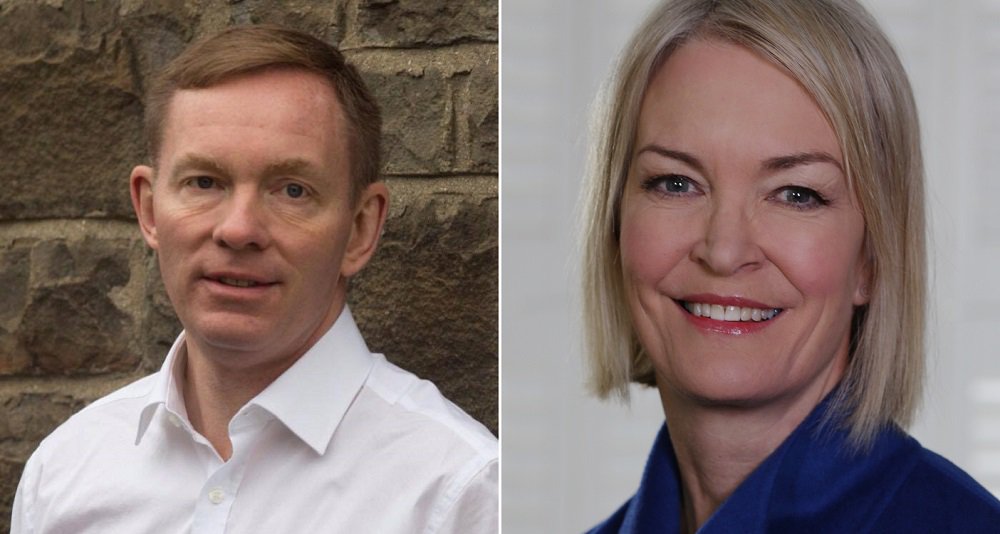
Earlier this month, 30 LGBT MPs and members of the House of Lords signed a cross-party letter calling for Britain to vote to stay in the EU in order to protect the rights of the LGBT community.
With less than a month to go until the June 23 referendum, and just ten days to go until the deadline to register to vote, we decided to grill two of the most prominent MPs to add their names to the letter – Labour’s Chris Bryant and Conservative Margot James – about the potential consequences for Britain’s LGBT community of a vote to leave, or a vote to remain…
On a more general note to start; why are both of you campaigning for Britain to vote ‘Remain’ next month?
Margot: I think all the arguments on the economy, unemployment, trade and our security in terms of things like terrorism, our membership of the European Union is pretty fundamental to our success in those areas. Whether you’re LGBT or whatever you are, I think British people are very much at an advantage if we stay in the EU, [but] I do think there are also important messages for gay, lesbian, bisexual and transgender people to want to stay part of a union which has in its DNA the protection of our human rights.
Chris: I’d say that LGBT people have the same issues as everybody else. If you buy a kettle anywhere in Europe you want to know that it’s safe. But also, I’m in a civil partnership by law, I’m happily recognised across the whole of the European Union; I like the fact that if I go to a hotel in Greece or in Spain or Italy or in Poland I can’t be turned away just because of my sexuality. It’s not just the protection of human rights in this country, it’s when you go elsewhere in Europe – and I suspect that LGBTQ people travel a bit more than everybody else.
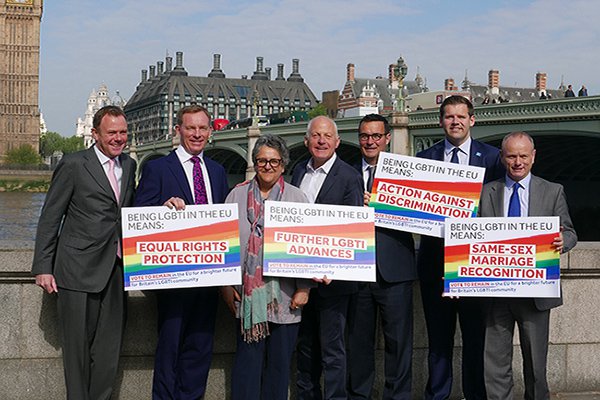
One thing that often confuses people is that the European Court of Human Rights (ECHR), which was responsible for getting many LGBT rights like equal age of consent and gays in the military passed here in the UK, isn’t actually related to the EU. This referendum wouldn’t affect our membership of that court, so what are the tangible things that the EU itself offers people LGBT people?
M: Well the articles in the EU treaty ensure that LGBT discrimination in employment are illegal. So that is, I think, a pretty fundamental thing. And as far as I understand it, the European Parliament are lobbying at the moment to extend that protection against discrimination in employment to a more proactive protection of equality in all other areas of social resistance as well. I think legally we are very much at an advantage by staying in.
I wondered from your perspective as a Conservative, Margot, what you made of the possibility of your party abolishing the Human Rights Act and withdrawing us from the European Convention on Human Rights and thus the ECHR? Is that not potentially far more damaging for LGBT rights protection than leaving the EU?
M: Well, I think the plans – and there will be a consultation first, by the way – are to integrate everything that is part of the European Convention of Human Rights into a British Bill of Human Rights, so I don’t think a huge amount will change. I think it’s really all about reinforcing the strength of our own courts. But I don’t think there will be a great deal of material change from that – if indeed it goes ahead. I do agree that the European Courts of Human Rights have played a very important role in advancing equality issues and protecting the rights of LGBTQ people. So I suppose in the spectrum of my own party, I’m not that enthusiastic for change.
What would you say to people who say the UK has achieved legal equality for LGBT people and will continue to have move forward whether we’re in the EU or not? Is this really an important enough reason to base our decision upon?
C: As I said earlier, in the main LGBT people will vote in exactly the same way as everyone else, which is to do with the economy. But you’re right, I think that we’ve achieved some great things in this country and I think it’s great that there’s a cross-party alliance on LGBT issues today than there were 15 years ago – but the advantages that we’ve gained are never ones that you can take for granted. If you look at the 20th century, the most liberal place for gay men in Europe was Berlin in the early 1930’s, and look what happened. So actually, that international solidarity of LGBTQ people I think is a really important part of our heritage that people want very positively to vote ‘in’.
M: I completely agree with that.
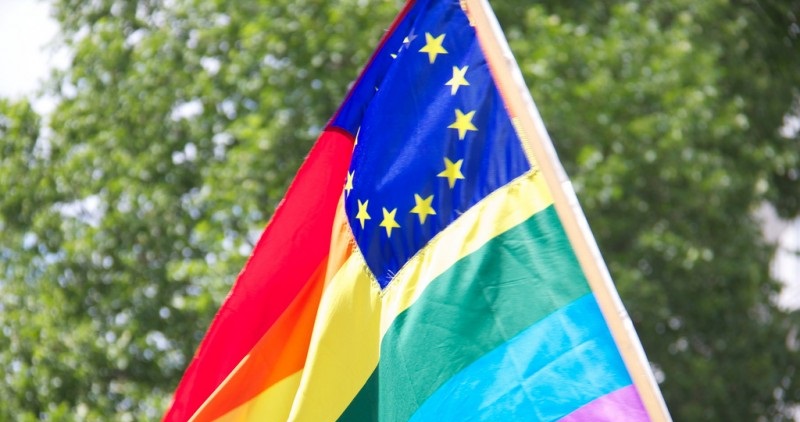
One of the most common criticisms levelled at the EU is that it suffers from a democratic deficit when it comes to issuing directives. How would you balance that criticism against the fact directives on LGBT equality are helping countries progress faster on these issues than they otherwise would?
M: Well on that last point, I think that most LGBT people would want to see the spread of equality and human rights internationally. A lot of our pressure groups now are looking abroad to see what we can do to create a more international consensus behind these issues. There’s a big opportunity to help people, in the Eastern European countries predominantly – which despite the centrality of the human rights within the treaty, are still getting away with far too much flagrant abuse of human rights of LGBTQ people – and I think yeah, this is an opportunity to help as much as we can through the EU and beyond.
C: I’d like the EU to have a stronger democratic line, but what I’d say is how many thousands of gay people were killed in the centuries of war that there have been in Europe? How many wars have there been on this continent? It’s probably the continent that’s been at war more than any other and I think it’s a success that we’ve managed to create a European Union which means we will not go to war with one another again. In a sense that’s the absolute human right that transcends all others – the right to live in peace.
We’ve seen David Cameron be accused of scaremongering for his comments about the EU keeping Europe peaceful – how would you respond to people saying that this too is scaremongering, the idea that LGBT people’s rights might be taken away?
C: Well I think it’s our duty to point out the value of staying in and point out the dangers of leaving. In essence, the Leave campaign’s only argument at the moment is that they don’t like [the Remain] campaign. They haven’t been able to come up to with a single independent body that says we’ll be financially better off if we leave, and they’re not able to point either to what it would look like if we were to leave. Some of them want to leave on the European Convention of Human Rights, some of them want to stay in it… Some of them want to leave the European Arrest Warrant, some of them want to stay in. Remember the bombings? The guy who bombed the Admiral Duncan? [ed: David Copeland] LGBTQ people know as well as everybody else the dangers of terrorism. Whether it’s that sort of lone wolf terrorism or coordinate from overseas, how on earth are we going to stand up to that sort of international terrorism if we don’t cooperate on a daily basis through the European Union? I think that’s a perfectly legitimate question to ask. And all that Farage and Boris and all the rest of them can say in return is ‘oh you’re scaremongering.’ But then Farage, on migrants, on the EU, his whole message is negative, isn’t it? I haven’t read a single positive message he’s made.
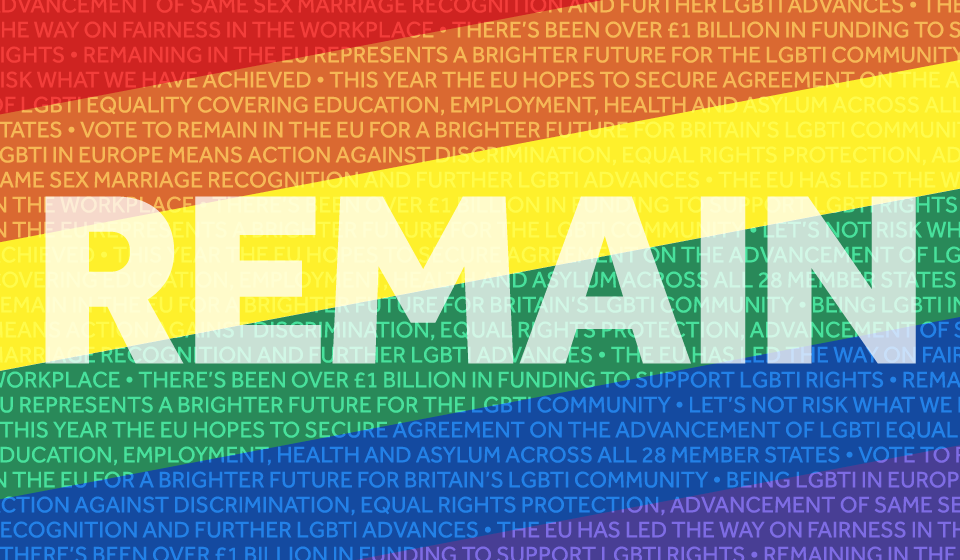
Equally, when it comes to people with extremist views who would seek to harm gay people, is having an open-door border policy with the rest of Europe the best way to keep us safe?
C: Well the guy who bombed the Admiral Duncan was home-grown in Britain, wasn’t he? You could do as much as you want to the borders as a country; you could put us inside a Tupperware jar and seal the lid on, and it wouldn’t make the blindest bit of difference to that. We have control of our borders because we’re not in the Schengen Zone, but in a sense the strongest point is that in the old days, somebody could commit a crime in this country and flee to another country, where they couldn’t be extradited. Now, thanks to the European Arrest Warrant they’re back here within a fortnight or a couple of nights at most. As international crime is a much bigger part of what the police have the deal with, that’s ever-more important.
If we did vote to remain next month, what are the things the EU could actually do better, and more of, to promote LGBT rights in the future as the EU potentially expands?
C: Well I think some of what we’ve seen in Poland and Hungary under very conservative governments is quite disturbing. That’s why when I was Foreign Office minister I was very happy for local ambassadors to fly the rainbow flag when there was a local Pride ceremony and so on – and for that matter it would be great if we were able to do that in Russia as well. I think Europe and the European Union being a beacon of sane, sensible equality measures is one of the most important things that we can provide to the world – whether that’s your democratic rights, your rights as a consumer, or your rights to do what you want in your bedroom.
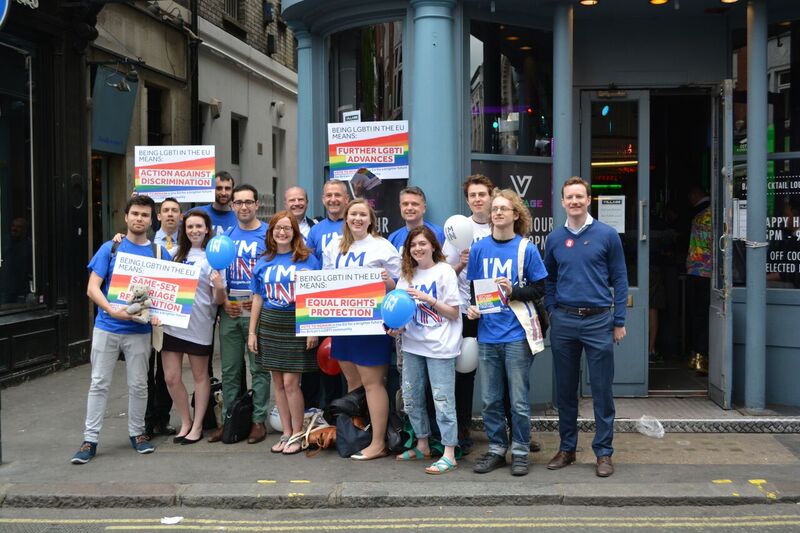
And finally, what would you say to anyone who’s not sure which way to vote next month?
C: I’d say we achieve far more through a common endeavor, from whatever camp, than by going alone. That’s true of a business, of a family, of a community, of a school and it’s also true of a country. If we choose isolation, if we turn our backs on Europe, I think we’ll regret it, our children will regret it and our grandchildren will regret it – and the absolute delight is that these days, LGBTQ people in Britain will have children and grand-children too.
The referendum on Britain’s membership of the EU is on June 23. You must be registered to vote by June 7. For more information on the Stronger In campaign, visit strongerin.co.uk/lgbt_rights.
